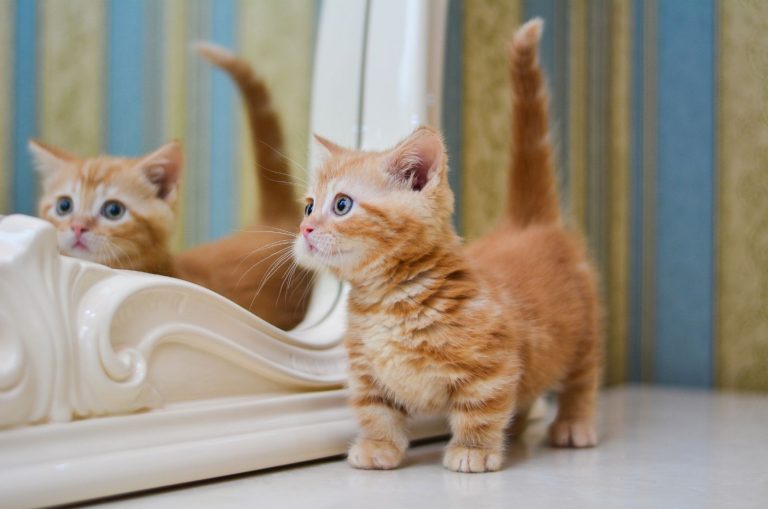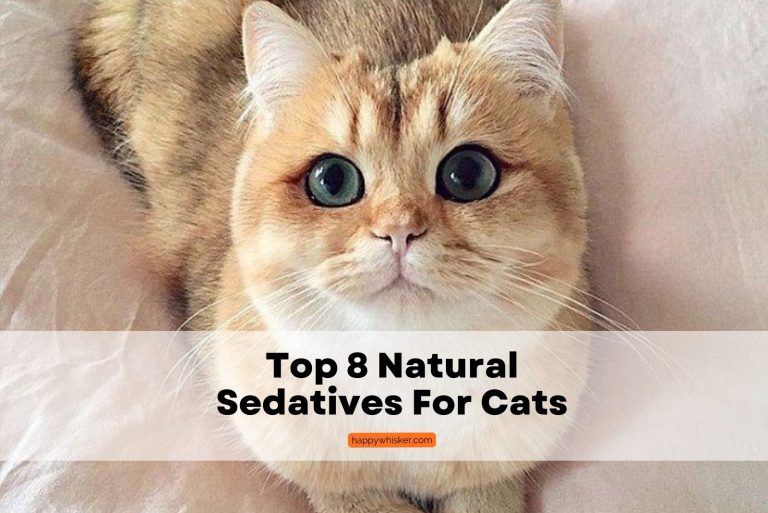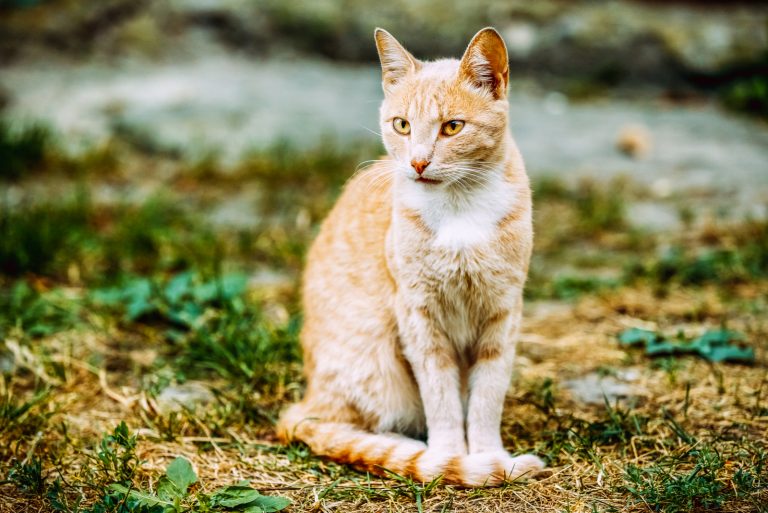My Cat Died And I Can’t Stop Crying: 12 Ways To Start Healing
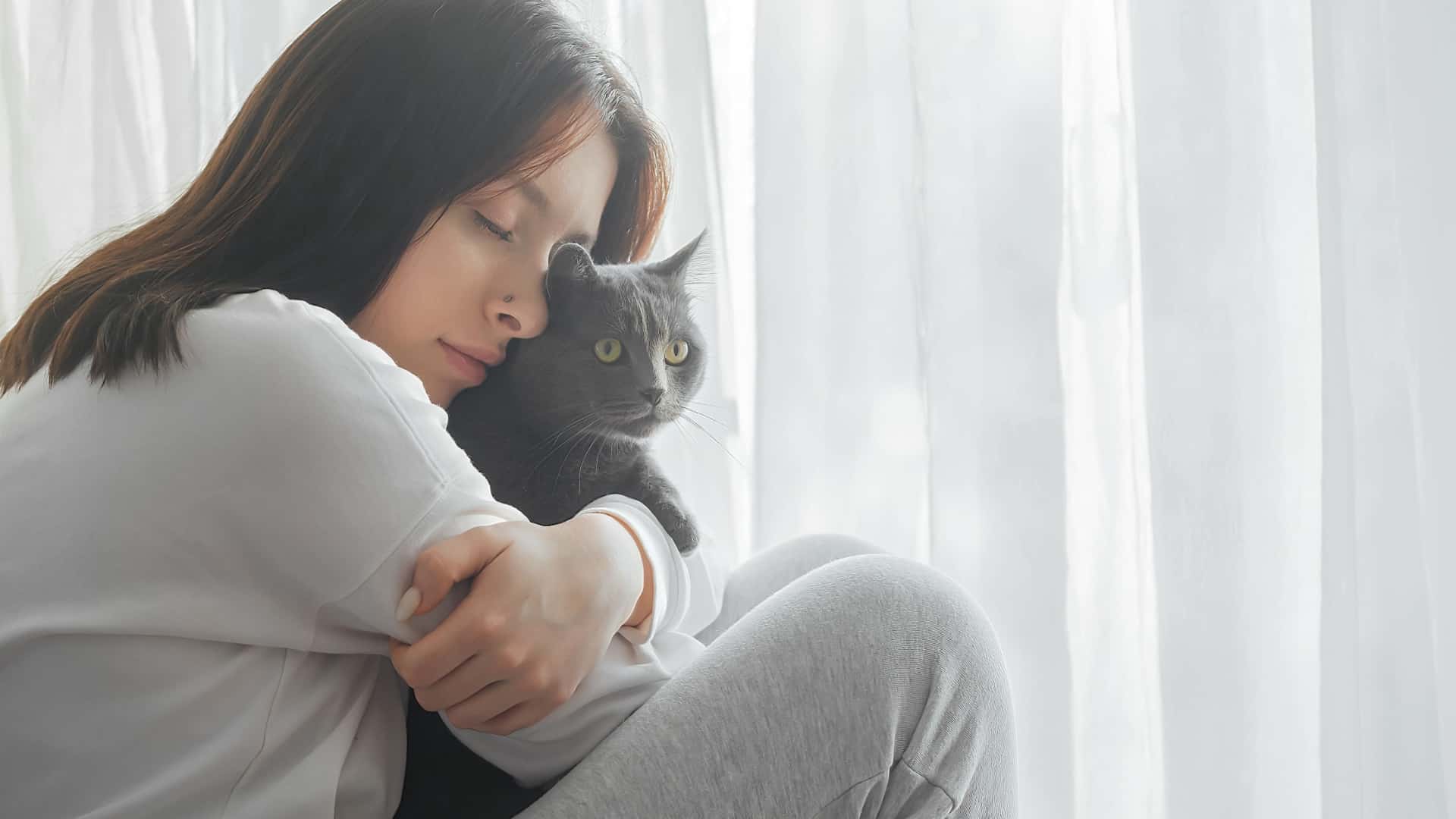
If you’re reading this article, I’m guessing you’ve recently lost your feline friend. Trust me, I know how that feels, and many other pet owners do.
My cat died and I can’t stop crying; what should I do?
First, know that what you’re feeling is entirely normal – your cat meant a lot to you!
Although losing a pet is never easy, there are certain things you can do to make the process easier for you. In this article, I’ll share my 12 best tips for dealing with pet loss.
My Cat Died And I Can’t Stop Crying
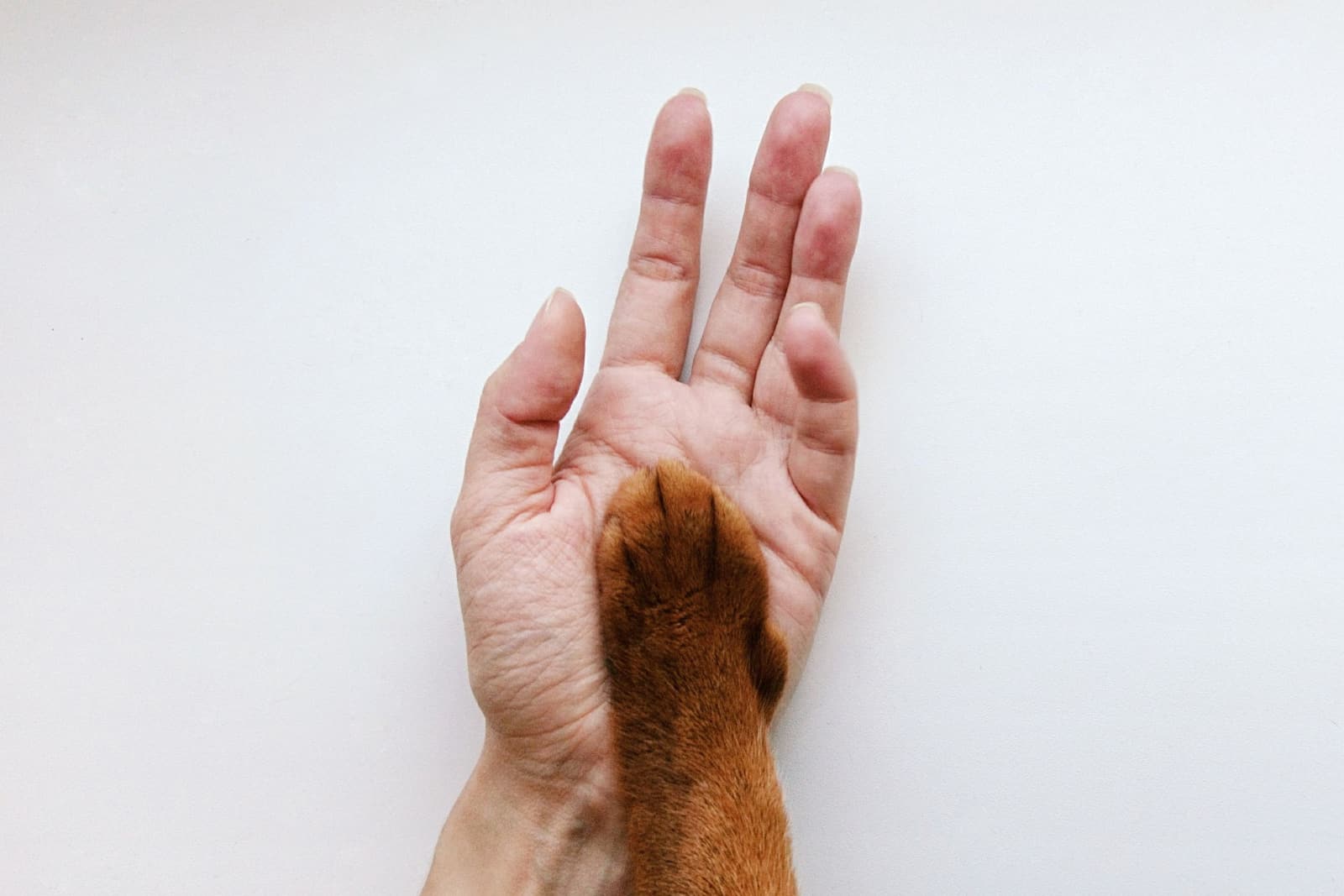
Six months ago, my beloved cat (named Bella) of 16 years passed. We had to put her down, as it was the kindest thing to do (she had been battling IBD for quite some time).
And I must say, handing her over to the vet was one of the most heart-wrenching moments of my life. I spent the next day crying. Yes, you read that correctly – I was crying the entire day.
I’ve come to terms with my pet’s passing, and you will, too, after some time.
I am sharing my experience, so you know you’re not alone! But that might not make you feel that much better. Because of that, I’m sharing my best tips for dealing with your cat’s passing.
Without any further ado, let’s talk about what you can do to lessen the pain of losing your pet.
12 Ways To Start Healing After Losing Your Cat

1. Let It All Out
Your cat has died, and you can’t stop crying? That’s okay – let it all out! There is nothing to be ashamed of. It’s better to cry than to bottle emotions up inside!
Losing your beloved pet must be heartbreaking, and crying is a natural reaction to the loss, especially if this is your first time dealing with a pet passing.
Do not hold yourself back; cry your heart out if you feel like crying.
Not having your fur baby with you anymore hurts, as I’m sure all pet owners who have lost a pet will agree!
2. Allow Yourself To Be Sad – It’s Completely Normal
When a loved one passes away, several common emotions arise, including grief, confusion, anger, guilt, and despair.
Researchers have only recently understood that a pet may be regarded as a loved one and a family member and that its death may cause similar and frequently similarly strong feelings.
Therefore, if you’re feeling heartbroken – know that it’s perfectly normal, especially if you’ve had a close bond with your pet.
Perhaps you’ve had your kitty for a long time, and they have practically become a family member!
Some might say, “it’s just a cat,” but our pets are not just animals; they’re our little soulmates and much more than “just cats”!
If you’re sad, you have every right to be; don’t try to suppress it.
3. Take It One Day At A Time

As you mourn, be kind to yourself and remember that it will take time to recover. You cannot expect to feel better in a day or two.
I know you’re going through a hard time, and you will feel like the pain will never go away, but trust me, it gets better! The emotional pain you’re currently feeling is a natural part of the healing process!
When I lost my pet, a friend of mine told me something that helped my grieving process a lot: “Take it one day at a time.”
If your cat was your best friend, like my Bella was to me, then it might be hard to think positively. If someone told me at that time that the way I was feeling would eventually pass, I would not believe them.
So, I took one day at a time and did not rush the healing process! I suggest you try the same.
4. Give Yourself Time To Grieve
Grieving, as many say, is an individual process. People experience grief differently; some might grieve for two days, weeks, or months!
Please know that you cannot “rush the grieving process.” You need to give yourself time to grieve, no matter how long that might take.
Some of us might secretly feel that we shouldn’t be grieving a pet’s loss so deeply, and try to convince ourselves we’re okay, when we’re not.
To feel the grief indicates that the bond we shared was genuine and strong and that the memories shared will never be forgotten.
The best thing you can do is to allow yourself to grieve and let the process last as long as needed. The grieving process ends naturally, and there’s not a lot you can do to “speed it up.”
5. Honor Your Cat
Many pet parents may find it nice to make a lasting memory that honors their kitty’s special place in their hearts and lives.
Creating some sort of memorial for your cat might be a good option.
You can perform a little ceremony in your garden in honor of your deceased cat or plant a tree or a plant near their grave or another special place (such as where your cat used to lie and sunbathe often).
You can get/make a necklace with your kitty’s paw print or put your cat’s ashes in an urn and display it somewhere in your home. You can also frame some of the cutest photos you have of your pet.
In this video, you can get some ideas for getting inspired with DIY pet memorial ideas!
A few weeks after my kitty Bella passed away, I planted a tree in my backyard to honor my kitty. The tree is still so small, but it’s growing so quickly! In a way, it represents that, as long as the tree is healthy and growing, the memories of my cat will be “alive” as well.
6. Remember The Great Memories You Shared
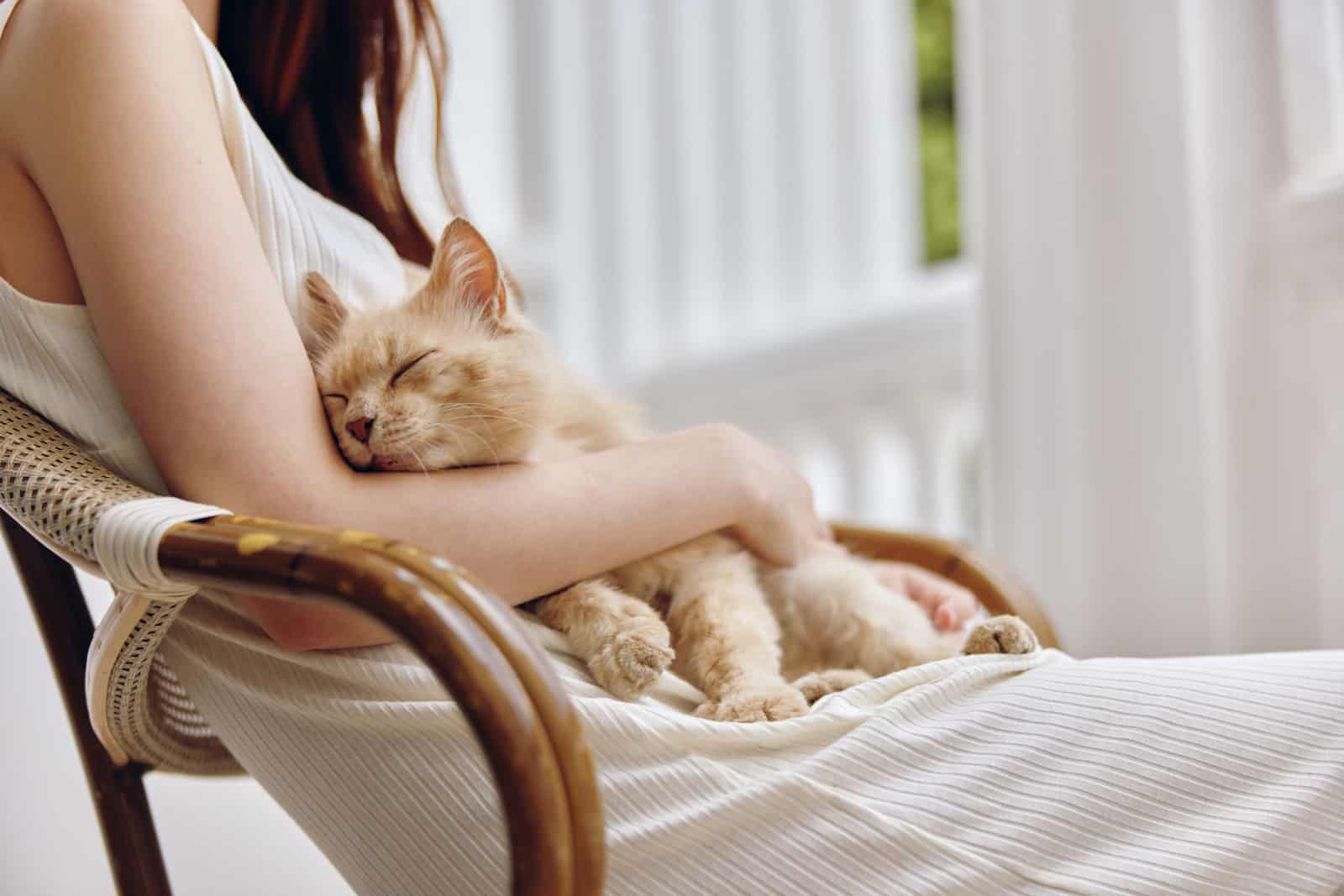
When someone dies, we are more likely to think of them. Though we cannot stop these thoughts from arising, we can somewhat regulate what they are.
We smile when we think back on all the fun times we had with our pets.
It’s very easy to go into the “sadness spiral” and never think positively. But trust me, remembering your pet in a positive light will make you feel so much better!
Try to remember the little things your cat did that made you smile.
Was your cat a food lover that could not wait for food to be poured into its food bowl? Remember how funny your kitty looked as they gazed at you while anticipating their kibble!
Or maybe your cat loved playing with toys so much that the average “toy lifetime” in your home was about a day before your kitty dismembered it?
I’m sure you’ll find a million reasons to smile!
7. Remember Your Cat Had An Amazing Life
This is one of the most helpful pieces of advice I’ve gotten while grieving the loss of my pet – “Remember, your cat has an amazing life living with you!”
And that is true – we, pet owners, try our best to give your pets the best life possible. We offer them unconditional love, time, attention, food, toys, health care, and so much more.
When your pet passes, you might start feeling that there was something you can do to prevent their death, but know that you could not.
You did everything possible to make your kitty’s life happy and healthy!
I’m sure your cat was very happy indeed, and it probably showed that to you with its daily meows and purrs and other displays of affection!
When you feel sad, try to remember your cat had a nice, happy life with you, and even though your cat has passed, its life was amazing, all thanks to you!
8. Spend Time With Friends And Family
Sharing your sorrow with loving friends and family may help you cope with the loss of a pet.
Many people compare losing a beloved pet to losing a friend or family member, so you should always ask for help if needed.
I’m sure your friends and family members will be more than happy to help you in any way they can.
What helped me was spending time with my family and friends.
It was good to take my mind off my cat’s passing, and even though I wasn’t my cheeriest at the meet-ups, I was also not thinking about my cat and crying, which made me feel a lot better.
Please, don’t be afraid to express your emotions. However, it’s sometimes good to forget about them, for a short time at least.
9. Get Out Of The House More – How About A Walk?

Our pets become members of the family and an important part of our daily routines, right?
Every morning, your kitty is one of the first things you see when you wake up; you have to fill up your cat’s food and water bowl, clean the cat’s litter box, and spend some time playing with them.
Now that you have no daily obligations around your cat, you might feel a void. Indeed, that void exists, and it can be hard to deal with it.
You will get so distraught about the idea that your cat is not with you that you won’t be able to focus on anything else, and you’ll feel worse.
I liked to get out of the house and go for walks. Recreation may distract you from your sadness, as it did for me.
Exercise is one of the best things you can do. By being active, you’ll increase the amount of “happy hormones” in your brain and feel happier than you did before you went for a walk, for example.
10. Write Down Whatever You’re Feeling
Writing down your feelings can be a great way to start the healing process. This is an amazing tip for cat owners who have trouble expressing their feelings to their friends or family.
Writing what you’re experiencing down on paper or in a notebook can help you recognize what you’re feeling – sadness, anger, or guilt?
Sorting out your emotions can help you deal with the confusion you might be feeling around your cat’s passing.
Writing down your thoughts and feelings is better than bottling them up inside! Writing them all down can help your mind feel at ease!
Over time, you’ll see how your healing process is improving, and you’ll eventually not need that notebook anymore.
11. Consider Getting A New Furry Friend
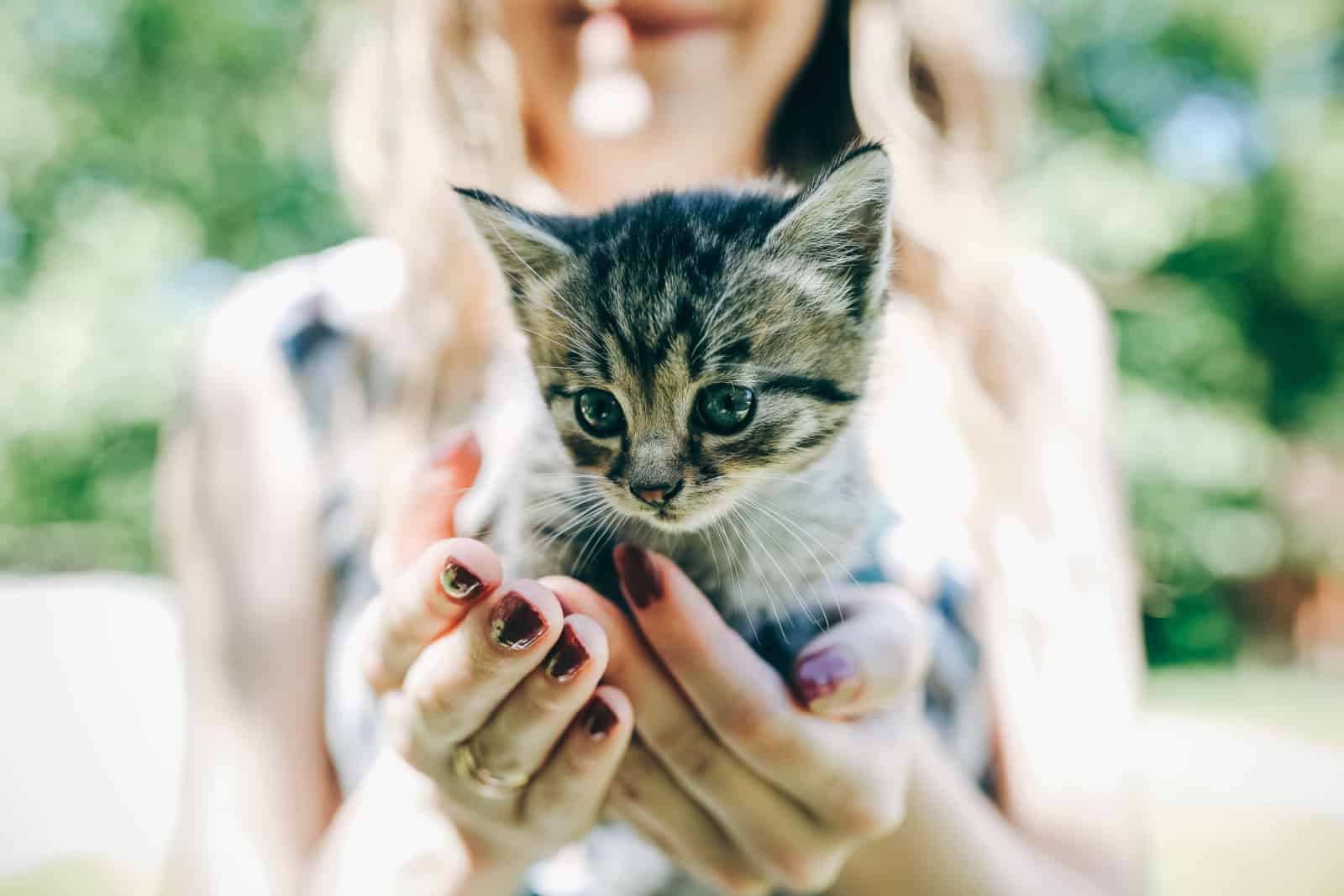
I know this advice might be controversial, but please hear me out.
Losing an animal companion is sad for all pet owners, and feeling the void of not having your pet around you is hard.
However, many people might benefit from getting a new pet in the home. A new pet will undoubtedly fill your health with love and joy!
But If you’re still not ready for a new furry friend, your grief will overshadow the joy of meeting a new kitten (or a puppy).
Therefore, before deciding to get a new pet, ask yourself – am I ready to have a new pet?
A month after my cat died, I was given a cat to foster for a short time until we found her a new place. Caring for her helped me a lot, and it partially took my mind off Bella’s loss and filled my days with joy.
Luckily, we found a home for the foster cat after two weeks, but caring for her has helped me heal more than I expected. Maybe caring for a new pet can help you heal as well.
12. Know That It Does Get Better
Remember that even if your pet is no longer with you, your shared memories will live forever. And someday, you’ll be able to smile as you remember those moments.
It’s easy to get lost in the whirlwind of sadness, especially during the first days after a pet loss. But what you must know is that it does get better!
After some time, the sadness will subside, and you’ll be left with great memories of your pet.
For some people, the grieving process lasts longer, and for others, it’s shorter, but all pet owners who have lost their pet eventually feel better! And you will too.
How Long Is It Normal To Cry After Losing A Pet?

Whether you are dealing with the death of a cat, a dog, or any other pet, it may be painful when your beloved animal leaves your life.
It’s completely normal to cry after losing a pet, no matter if it’s for a day or a month. There is no limit on how much is “normal” to cry.
Whatever you’re feeling, know that it is okay to feel those emotions, and if the thought of your pet makes you cry, let it out!
You should keep in mind that you are not alone, though. You can turn to your friends and family to support you! I’m sure they’ll try to help you in any way possible.
How Do I Stop Crying After Losing A Pet?
Losing a pet is a difficult time in your life, and you might cry a lot, especially if you have a tight bond with your feline friend.
What has helped me through my loss is thinking positively but also acknowledging my emotions: “Yes, I am sad, but let’s look at the positive side – my cat’s life was amazing; I did everything I could to make her happy, and provided her with a lot of love and cuddles – I know my cat was happy!”
You can try doing the same and see if that might help!
What Is The Normal Grieving Process After Losing A Pet?

Pet loss is difficult and distressing, regardless of whether the pet died naturally or was put to sleep.
You might feel many feelings at once; however, it’s natural to wonder what the normal grieving process is.
The answer is – there are no set “stages of grief pet owners have to go through”!
After a pet’s passing, a pet owner might feel many emotions, such as shock, denial, anger, depression, loneliness, and guilt.
Let’s talk a bit more about each of these.
1. Shock
The loss of your pet can be shocking to you, as it is for many pet owners.
The shock might be the first emotion you experience after finding out your pet has passed, especially if the pet’s death was sudden and unexpected.
It’s hard to comprehend what’s happening and come to terms with the fact you have to let go of your beloved pet.
2. Denial
Denial may help you divert your attention from your suffering.
However, denial is more of a strategy to ignore reality and the belief that it will go away if you don’t experience the pain.
Sadly, this rarely works; instead, pain is more likely to wait until you let your defenses down before lashing out at you when you’re unprepared to handle it.
3. Anger
Anger is a part of the grieving process for many pet owners.
Some people are enraged by the disease that claims a pet’s life: “Why did it have to happen to this pet? It’s unfair.”
Anger is a powerful emotion, and it drains you emotionally, but know that it will get better.
4. Depression
Although depression is a natural reaction to losing a pet, it can also prevent pet owners from fully coping with their loss. Try not to allow yourself to go into a downward spiral and only think negatively.
The overwhelming feelings of sadness can affect your quality of life and impede your performance at work or school, for example.
Self-care and good mental health are very important, so seek help if you feel overly sad or depressed after losing your pet.
5. Loneliness
One of the hardest things about the death of a pet is the void it leaves when they pass. Our pets are our loyal companions, and taking care of them and spending time with them, takes up much of our time.
After they’re gone, a part of our lives are missing, and we feel lonely. If you’re feeling like this, know that it’s completely normal.
6. Guilt
Another common emotion pet owners might feel is guilt.
Feelings of guilt are common for pet owners who didn’t get to say goodbye to their pets for the last time or how little time they had to say goodbye.
It’s common to have guilt if your cat passed away abruptly in an accident or died of an illness such as heart disease or kidney failure. Why wasn’t I able to protect my kitty?
However, you must accept that you did the best you could at the time to take care of your pet!
Why Does Losing A Cat Hurt So Much?
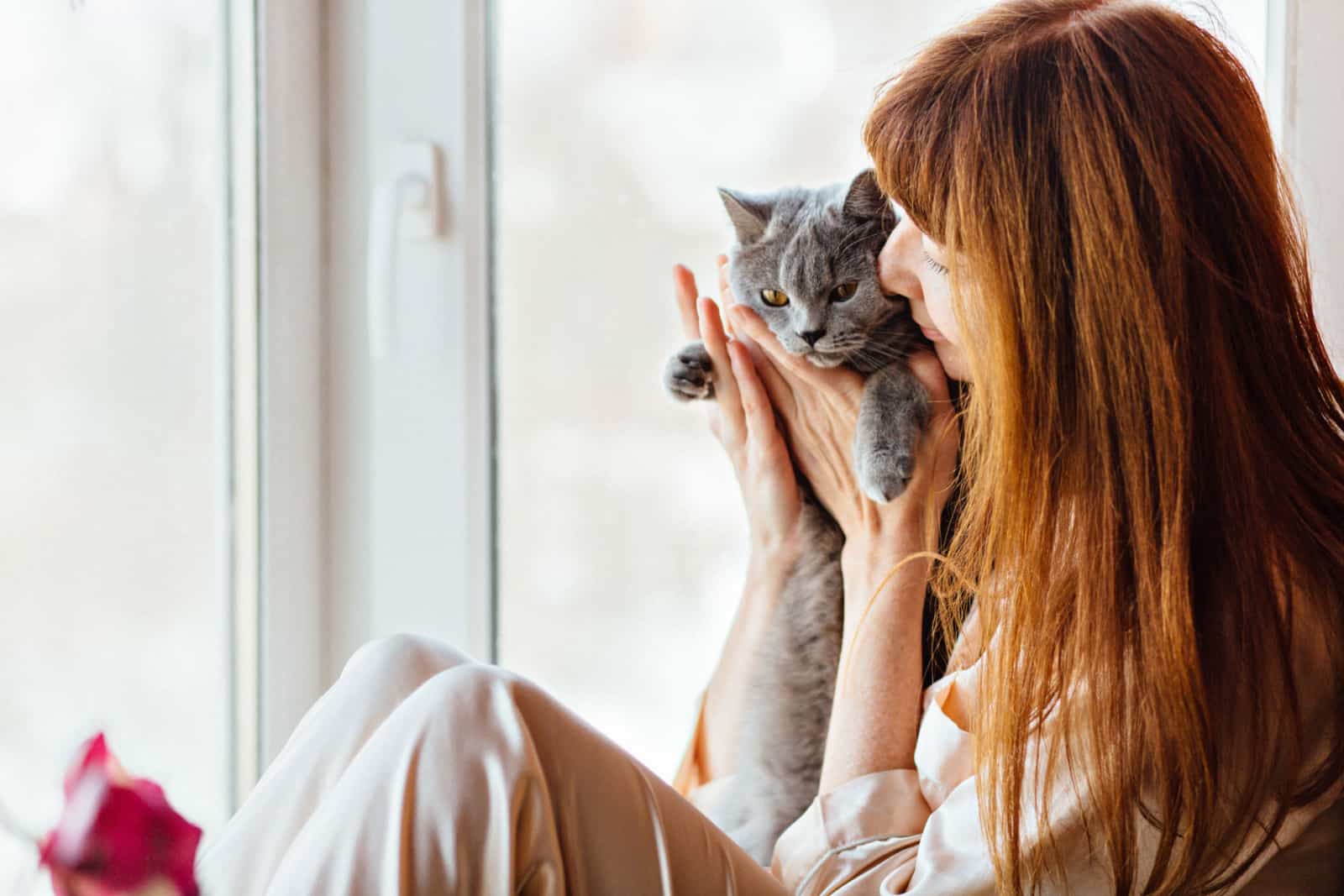
We become very emotionally attached to our pets, and that’s normal. They’re part of our daily lives and make us very happy.
Therefore, it’s perfectly normal to feel upset when they pass away! Our pets become family members, and not having them around is unusual and sad.
However, the hurt you’re feeling does not linger forever – after some time, you’ll feel better!
Seek emotional support from your partner, family, or friends. Talking to them and spending time outside can help you during your grieving process.
A nice poem called The Rainbow Bridge talks about where lost pets go before being reunited with their owners. Consider reading it, as it can make you feel a bit better!
In Conclusion
My cat died and I can’t stop crying; what should I do?
You should let yourself cry as much as you need to and let all of your emotions out! Give yourself time to grieve, and don’t rush the healing process.
Think of the great memories you shared with your kitty, and remember your cat had an amazing life with you.
The most crucial thing to remember is that, despite your current struggles, things will get better, and you will have a lifetime of wonderful memories you had with your pet!
Related Articles:
When Cats Die, Where Do They Go? Dealing With Pet Loss

